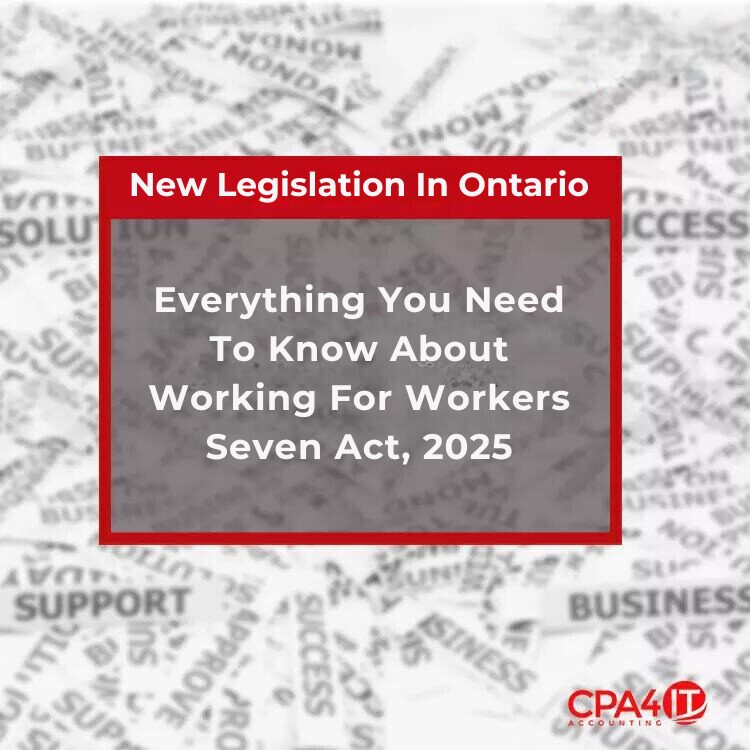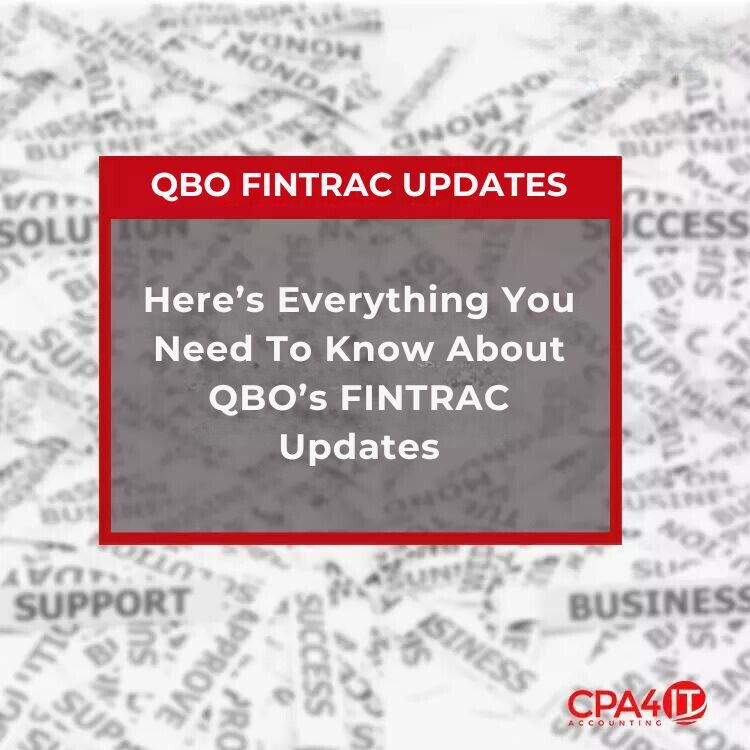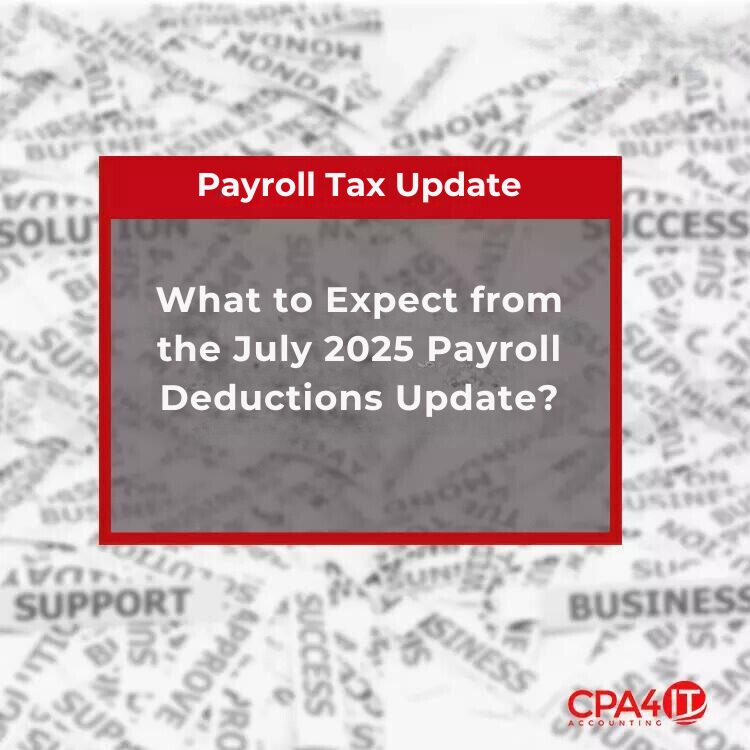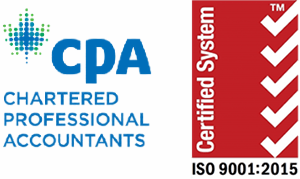Managing your finances and meeting tax deadlines is crucial to avoiding penalties and maximizing your savings. At CPA4IT, our team of expert accountants is dedicated to helping small business owners retain more of their hard-earned money and reduce financial stress. Here’s a guide to the key tax deadlines you should mark in your calendar to stay ahead.
For Businesses
January 10 or 15
- Source Deductions: If you pay salaries, wages, or taxable benefits, you must remit source deductions such as CPP, EI (If Applicable), and income tax to the Canada Revenue Agency (CRA).
- Threshold 1 Accelerated Remitters: Payment due by January 10.
- Threshold 2 Accelerated Remitters: Payment due by January 3.
February 28
- T4, T4A, and T5 Information Returns: Ensure you file these slips to report employment income, pension payments, or dividend income.
Corporate Tax Balance Due Date:
- Due three months after the fiscal year-end for Canadian-controlled private corporations (CCPCs) claiming the small business deduction
Corporate Income Tax Return (T2):
- File your T2 return six months after your year-end.
GST/HST Returns:
Filing and payment deadlines depend on your reporting period:
- Annual filers: Payment is due three months after the fiscal year-end (same as filing deadline).
- Quarterly/monthly filers: Payment is due at the same time as the return, typically one month after the reporting period ends.
For Individuals
March 1
- RRSP Contributions: The last day to contribute to your RRSP for the previous tax year. Contributions can lower your taxable income and reduce your tax bill.
March 31
- Family Trust Returns: Deadline to file the Family Trust Income Tax and Information Return.
April 15
- U.S. Tax Returns: If you’re a U.S. taxpayer, personal income tax returns are due.
April 30
- Canadian Personal Income Tax Returns: File your return and pay any taxes owed for the previous year.
June 15
- Sole Proprietorship Returns: Sole proprietors must file by this date. However, any taxes owing are still due by April 30.
Penalties and Interest
- Filing Late: A penalty of 5% of the balance owing plus 2% per month for up to 12 months.
- Late Payment: Interest is charged on any unpaid balance owing starting the day after the due date, compounded daily.
Why Meeting Deadlines Matters
Missing tax deadlines can lead to costly penalties, accrued interest, and unnecessary stress. Filing on time not only ensures compliance but also helps you retain control of your finances.
Having a Hard Time filing before Deadlines?
Don’t worry, we’ve got you covered! Our team of expert accountants will take care of all your financial responsibilities to put you in a healthy spot. Our goal is to help you organize your finances, create wealth, and transform that wealth into a legacy. Don’t forget to click here and book a FREE consultation with our team of experts to discuss this further.






